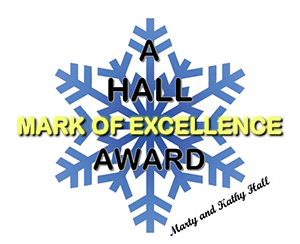 This World Cup coverage is made possible through the generous support of Marty and Kathy Hall and A Hall Mark of Excellence Award. To learn more about A Hall Mark of Excellence Award, or to learn how you can support FasterSkier’s coverage, please contact info@fasterskier.com.
This World Cup coverage is made possible through the generous support of Marty and Kathy Hall and A Hall Mark of Excellence Award. To learn more about A Hall Mark of Excellence Award, or to learn how you can support FasterSkier’s coverage, please contact info@fasterskier.com.
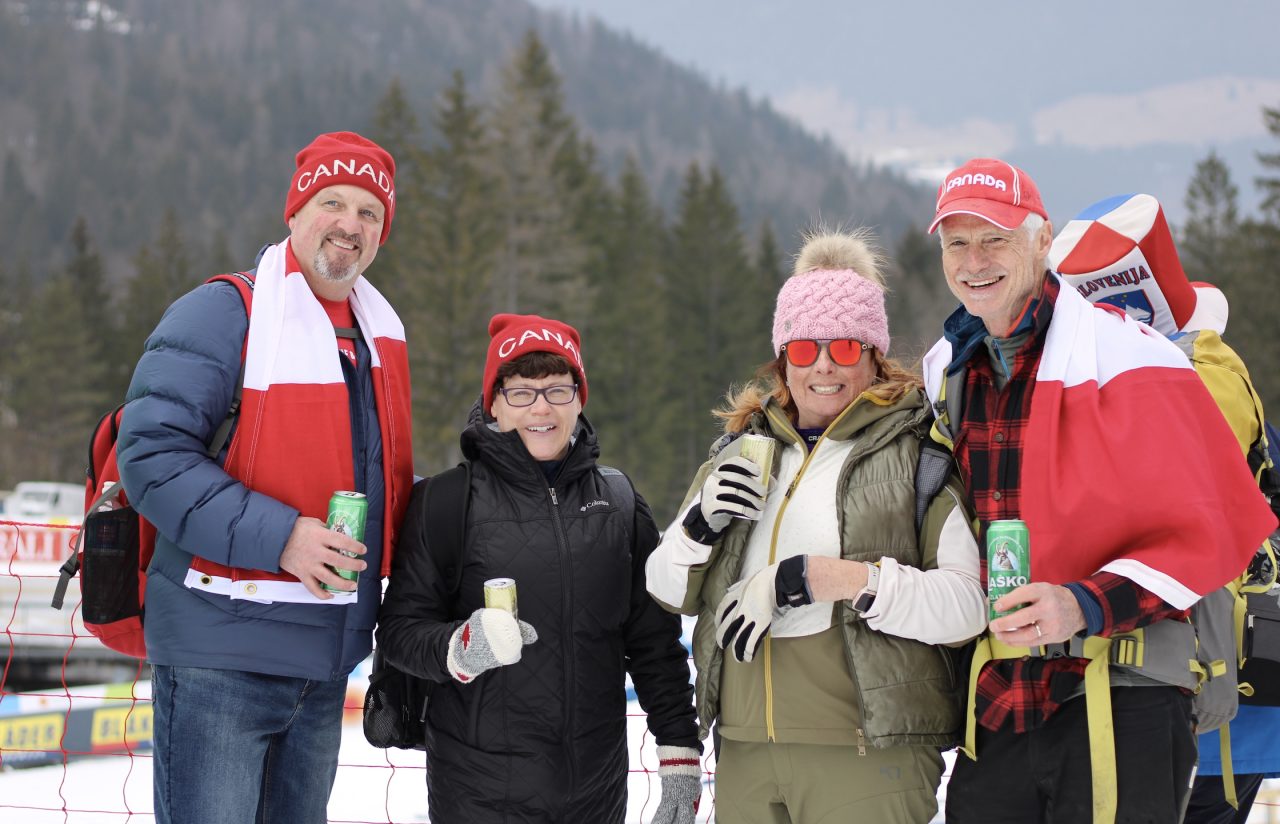
PLANICA, SLOVENIA – A year ago, Canadian cross-country skier Graham Ritchie had reached the pinnacle of his sport: He was competing at the Winter Olympic Games in Beijing.
His parents? They were half a world away, forced by China’s draconian coronavirus protocols to take in their son’s achievements on television.
“It sucked,” said Dave Ritchie, Graham’s father. “Really, it sucked.”
Fast forward a year, to the World Ski Championships here: Ritchie, an insurance broker from the hardscrabble town of Parry Sound, Ontario, was posted up on the side of a trail on his first-ever European trip — beer in hand, taking in the picturesque views of the Julien Alps with his wife as his son raced by with the best skiers in the world.
“It’s special,” he said. “It’s exciting to come and see what they do.”
The Ritchies are one of a bevy of families who flew to Slovenia from North America this week to watch their children compete. Their presence here is one of the clearest signs yet of the end of the past two years of coronavirus-imposed isolation on the international circuit for Canadian and American athletes, who were competing largely without any in-person support from their loved ones and friends since the onset of the pandemic.
“Whether you get dead last or you win, they love you just the same,” said Hailey Swirbul, a 2022 Olympian who’s also racing in Planica. “It’s so nice for me to have safe people around, who provide that for me.”
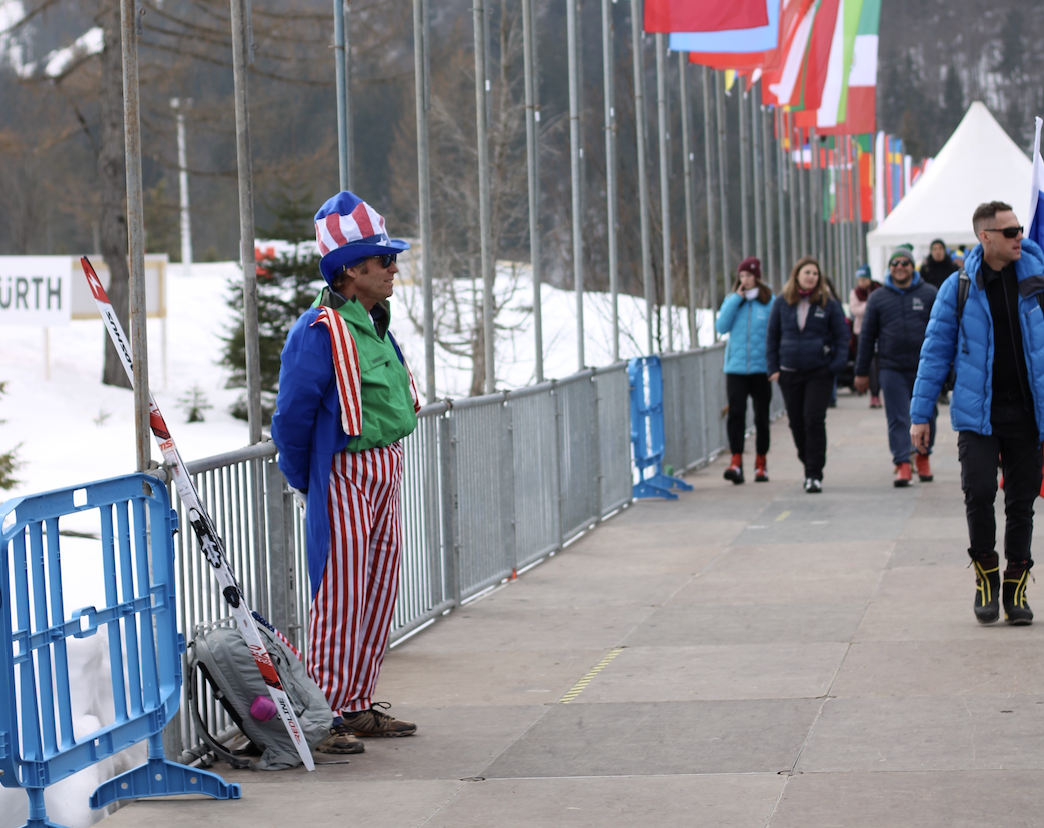
Swirbul’s parents, Rebecca and Brick, both flew to Slovenia from Colorado and were along the course to see their daughter place 33rd in Thursday’s sprint race. Brick, wearing pants, a vest and stovepipe hat all made from American flag striped fabric, was impossible to miss.
Hailey Swirbul’s place on the American team wasn’t confirmed until a few weeks ago, and her parents hastily made plans to watch her race at an international level. The pandemic had kept them from seeing their daughter in Beijing and at the 2021 World Championships, in Germany.
The Swirbuls also had planned to see Hailey at World Cup races in Quebec, in early 2020. But the coronavirus forced the cancellation of those races just days before.
Being in Planica is “spectacular,” Rebecca Swirbul said.
But it’s also not completely normal. When the three Swirbuls spent some time driving together earlier this week, “we wore masks in the car, I opened the windows,” Rebecca said.
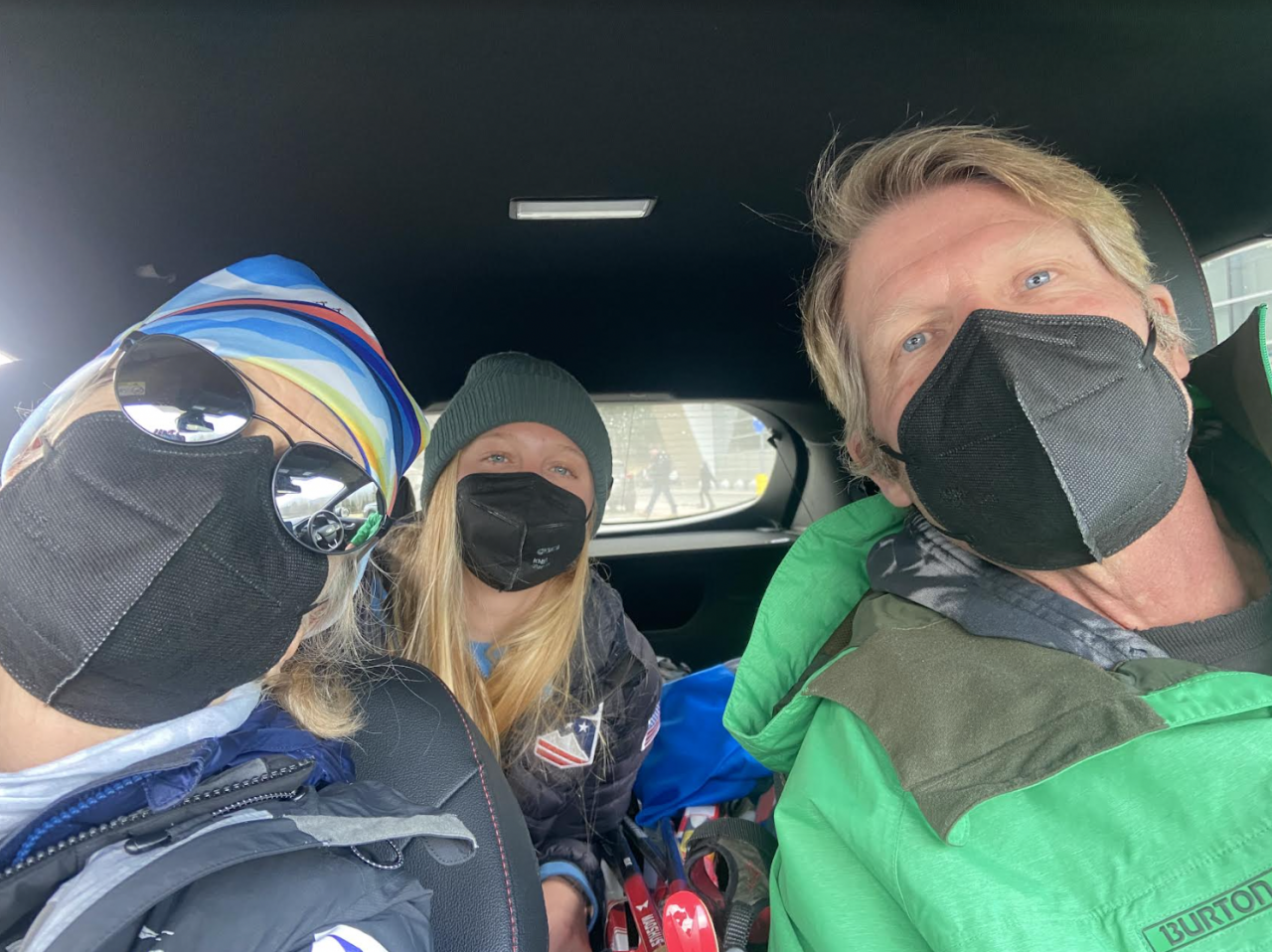
“It’s sad that that’s our reality now,” she said. But after raising two endurance athletes, she added — Hailey’s brother, Keegan, is a professional cyclist — she understands the need for caution.
“I get it,” she said. “A cold: you’re done.”
Another set of parents in Planica — those of American sprinter Julia Kern — saw those risks for themselves when they were following their daughter’s competitions in Europe earlier this year, during the Tour de Ski.
At the time, several U.S. team staff caught the coronavirus, and Kern’s parents, Dorothee and Gunther, were pressed into service.
Dorothee, a former professional basketball player, said her own experience as a professional athlete has helped her understand the need for boundaries while her daughter is competing.
“It is important that they have their space and that they do their thing,” she said.
One thing that athletes’ parents can do, the Kerns said, is bring needed items from the U.S. to Europe, where many North American skiers live for months at a time — things like medication, clothing and caffeinated beverages of choice.
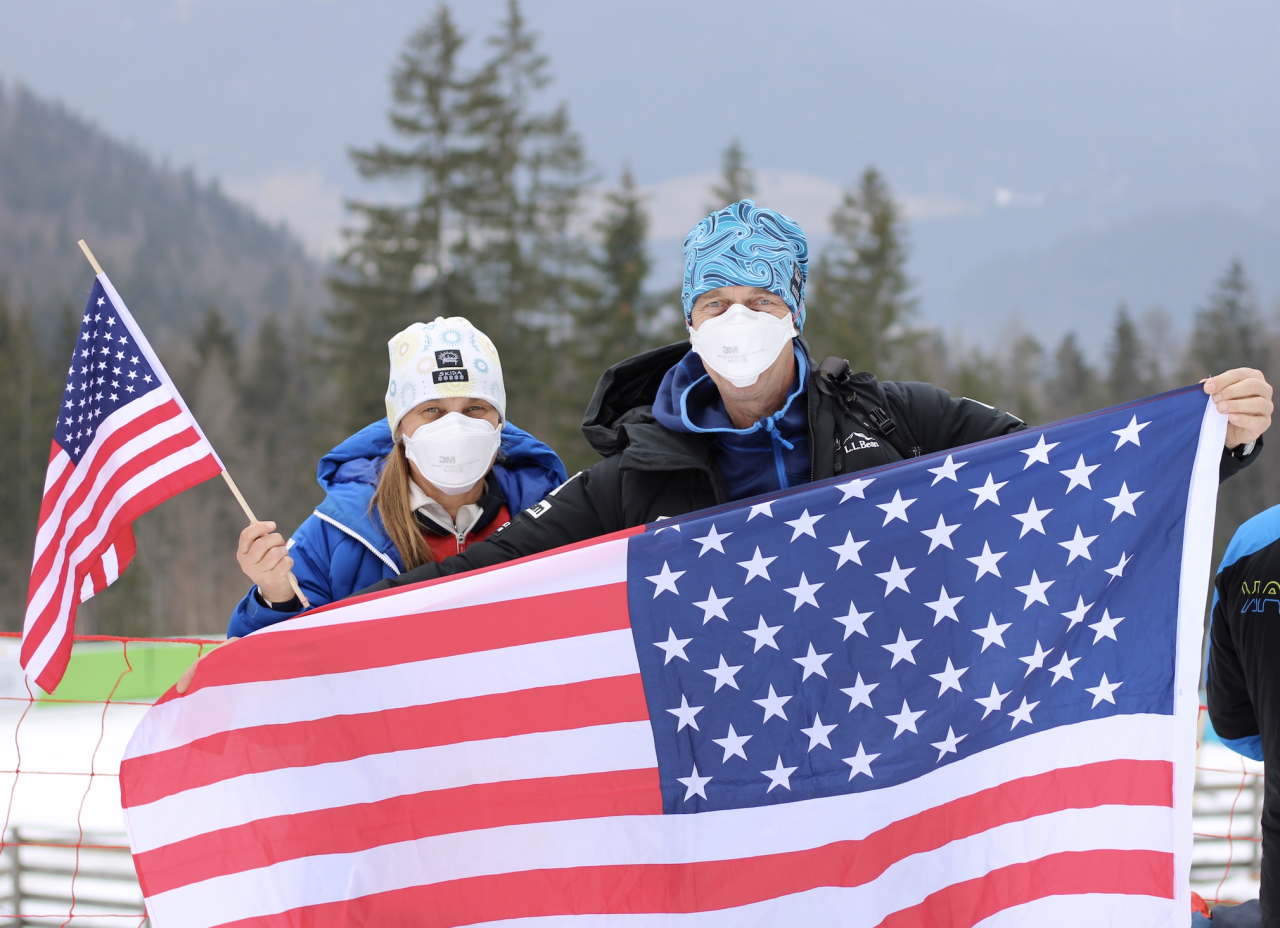
“I roast my own coffee, and Julia is a real fan — and I think Jessie (Diggins) as well,” Gunther Kern said. “Fresh roasted beans.”
The parents of Olivia Bouffard-Nesbitt, meanwhile, brought a new credit card for their daughter from their home in Canada.
“The last one is expired,” said Sylvie Bouffard, Bouffard-Nesbitt’s mother.
The Bouffard-Nesbitts and Ritchies watched Thursday’s race together, sporting maple leaf flags and attire. They said they plan to do some sightseeing over the course of the 11-day championships; team leaders are also organizing a dinner for parents and athletes.
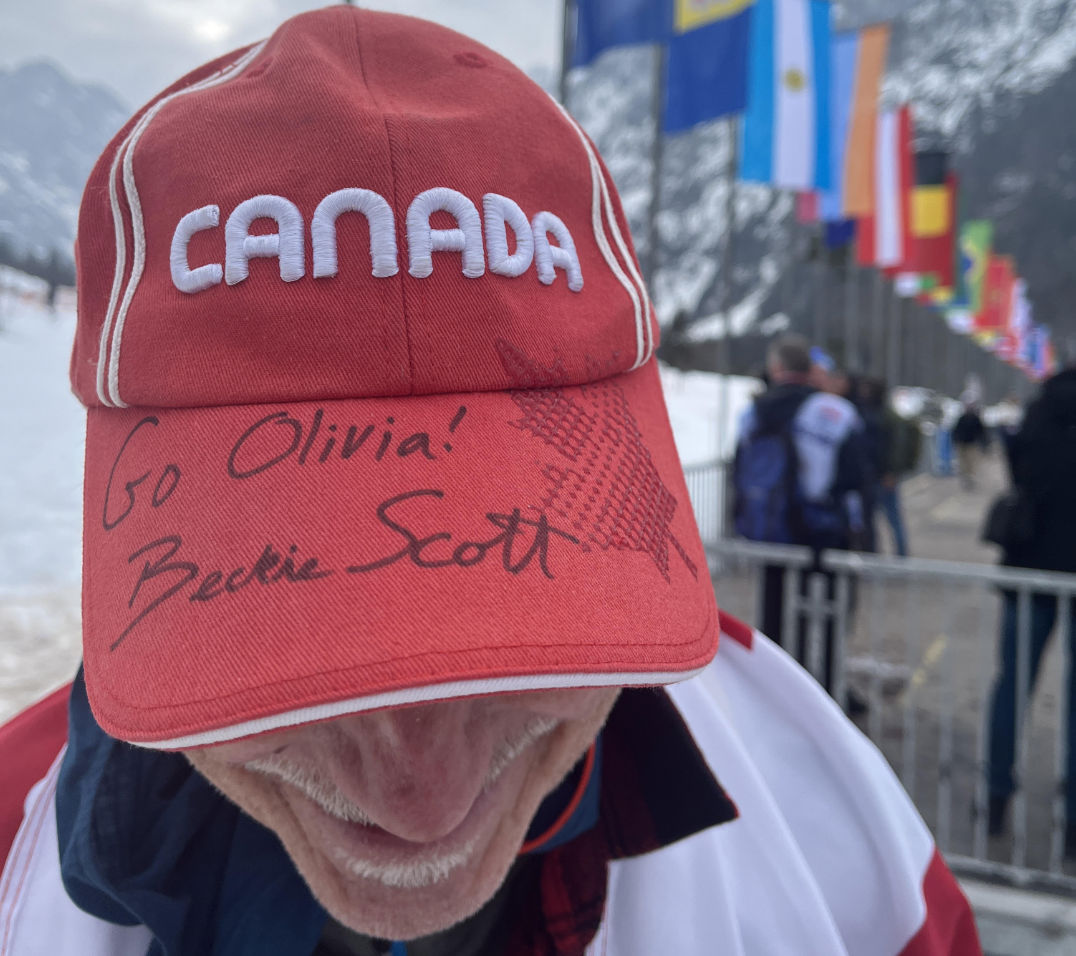
Bouffard-Nesbitt said she didn’t actually hear her parents out on the course, which was lined with boisterous European fans. But she said she’s thrilled about their presence.
“They’re such big ski fans. They love to watch the World Cup, and they love to follow my racing,” she said. “I’m so happy that they’re here — I just think it’s such a fun environment to be in, as a ski fan.”
Graham Ritchie did hear his parents during his qualifying lap of the sprint course — though he wasn’t entirely prepared for it.
“It almost caught me off guard for a little bit,” he said. “I wasn’t used to hearing my dad’s voice, in Slovenia.”
The extra support helps even the athletes who don’t have parents around, said Matt Whitcomb, the head coach of the U.S. team.
“You ski through the stadium, and you can’t help but train your eyes on a few American flags that are just peppered throughout,” he said. “It’s energy that is being invested in our team.”
European parents are also getting their first chance at watching in-person competition in more than two years. During Friday’s hour-long pursuit race, the fathers of two of the Norwegian medalists — Johannes Høsflot Klæbo and Sjur Røthe — spent the event along the trails above the Planica stadium, running from fence to fence to cheer their sons on to silver and bronze, respectively.
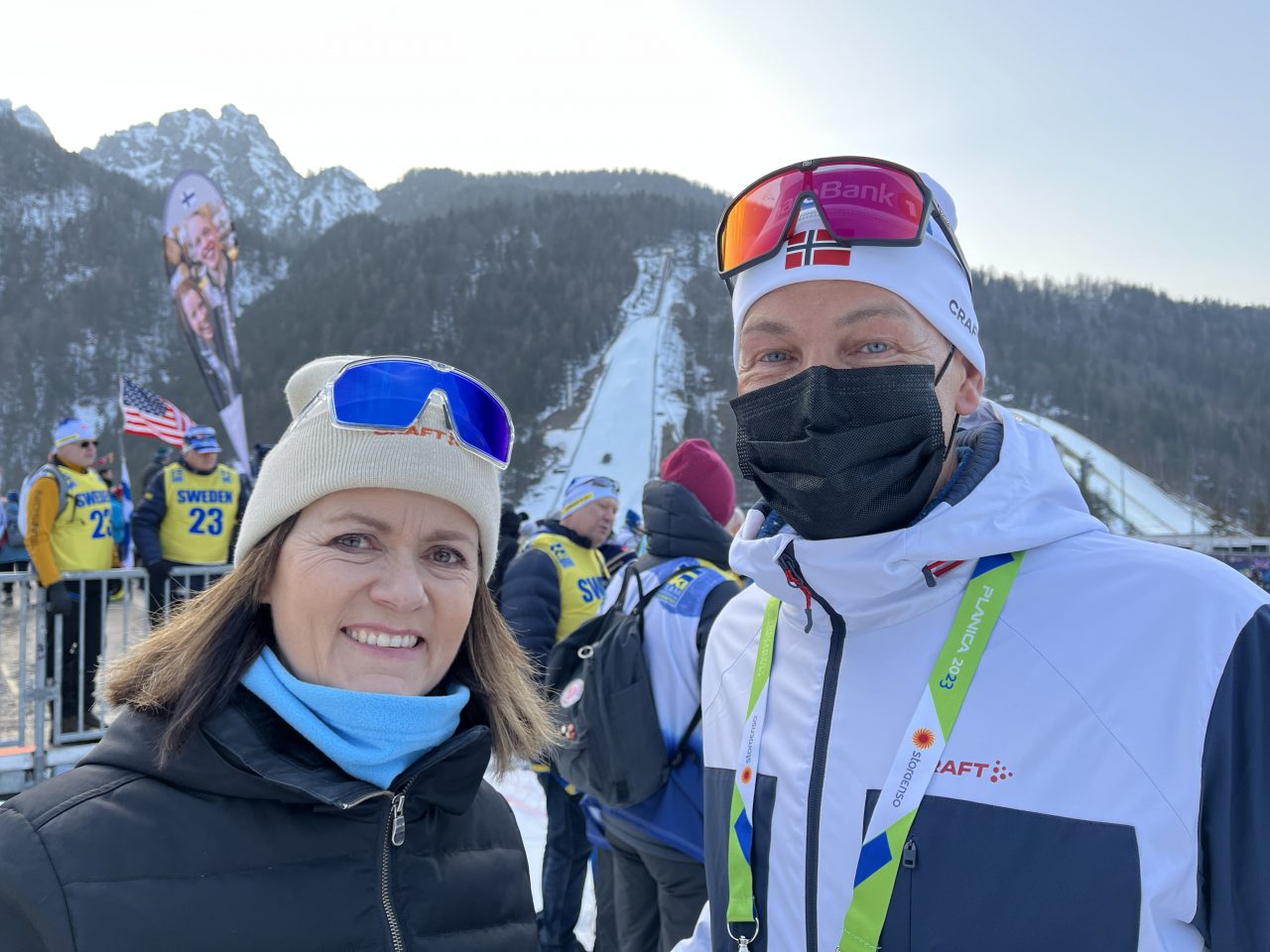
Haakon Klæbo, whose son is one of the most decorated cross-country skiers in history, said Johannes’ grandparents, mother and brother are all in attendance this week.
“Yesterday, when he won the sprint — the first thing he did was just to go over to the family,” Haakon said. “You could just see it in his eyes and in his smile, he was very happy. I think it means a lot to the athletes.”
Nathaniel Herz
Nat Herz is an Alaska-based journalist who moonlights for FasterSkier as an occasional reporter and podcast host. He was FasterSkier's full-time reporter in 2010 and 2011.



